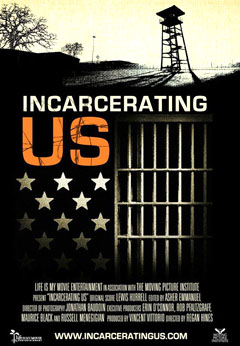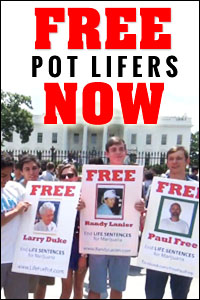
For weeks, the Biden administration has kept thousands of people in a state of panic by letting a single news report linger without formal denial or confirmation.
The report, published on July 19 by the New York Times, said the administration’s “legal team” had concluded, based on prior legal guidance, that inmates released to home confinement for fear of Covid-19 spread in their prisons will legally have to return when the pandemic state of emergency ends.
The Department of Justice has declined to say whether or not it will uphold or rescind the Trump-era Office of Legal Counsel memo that says those inmates must go back. And the White House has not commented on whether President JOE BIDEN will use his clemency powers to intervene. Instead, it has simply restated the president’s commitment to “reducing incarceration and helping people to re-enter society.”
Absent any action from Biden, criminal justice reform advocates say, that’s an impossible line to swallow.
To understand why, just look at the stats. The Bureau of Prisons Director MICHAEL CARVAJAL testified that 7,000 inmates are in home confinement under the Coronavirus Aid, Relief, and Economic Security (CARES) Act. Of those, the Brennan Center estimates that roughly 20 individuals have been returned to prison as result of violations. Twenty.
“We know that these are people who are not a threat to public safety,” said LAUREN-BROOKE EISEN, director of the Brennan Center’s Justice Program. “There is absolutely no public interest being served in having this group of individuals reincarcerated.”
But those are just numbers, devoid of any sense of the human toll that comes if neither the DoJ nor the president take action. A fuller illustration comes from a man named RUFUS ROCHELL.
Rufus’s story is a microcosm of the inequities in the criminal justice system. At the age of 36, he was given a 40-year prison sentence for conspiracy to distribute and possession of crack cocaine. To this day, he claims his innocence and there are compelling reasons to believe him. But he never received clemency, even after one of his best friends in prison — the financier CONRAD BLACK — got a pardon from DONALD TRUMP and subsequently petitioned Trump’s son-in-law JARED KUSHNER to grant one to Rufus.
Instead, what got Rufus out was Covid. He was released in April of 2020 because of fears of rampant spread in his facility. He stopped at a Boston Market for his first post-prison meal — barbeque chicken — and then made his way to his sister’s home in Micanopy, Florida.
Over the past 16 months Rufus has worked with at-risk youth, helped at food drives, volunteered with church groups and spoken before members of Congress, including House Speaker NANCY PELOSI, about the Covid risks in prison facilities. He wears an ankle monitor and can’t venture past the front yard without clearance from his halfway house.
A few weeks back, he got a call from AMY POVAH — a former prisoner-turned-clemency advocate who’s helped with his case — informing him about the Times story.
“I didn’t want it to be a shock to him,” Povah told me.
As she spoke about Rufus and others facing the prospect of reincarceration, Povah was near tears. She thought about what it would mean for her to go back to prison after having served nine years for a trafficking case (her sentence was commuted by President BILL CLINTON).
“I’m not sure I wouldn’t commit suicide,” she said. “It’s just too much to ask of a human being.”
Rufus, by contrast, was almost disturbingly circumspect about it all.
“I’m not upset or nothing,” he told me when we talked. “Because the fact is, I did a good job out here in terms of changing lives. And doing the best I could to change lives. And maybe it is time for me to step back in for a little while to help change lives inside of there.”
Rufus is 69 years old. He has ten months left on his sentence due to time well served. Perversely, the longer Covid lingers, the better off he’ll be: there will be no official end to the pandemic and he will remain out from behind bars.
But of the 7,000 inmates in home confinement, an estimated 2,000 to 4,000 or so have sentences unlikely to end before the pandemic. They’re now waiting for any word from Biden. And even those in the advocacy community who work on these issues — and have pushed for clemency for this community — say they’ve gotten no sense of what the White House is going to do.
“I would love to stay out, I would love to have my freedom,” Rufus told me before we hung up the phone. “But sometimes things are out of your control and what this shows me is that those in authority, if this happens, are not for rehabilitation and second chances and changing individual lives for positive good.”
The White House did not comment for this piece.














